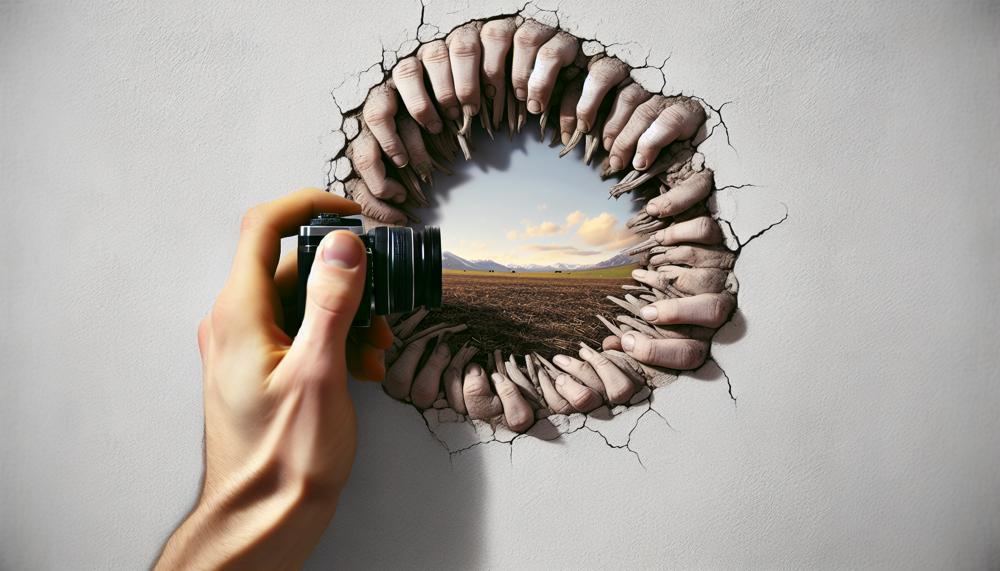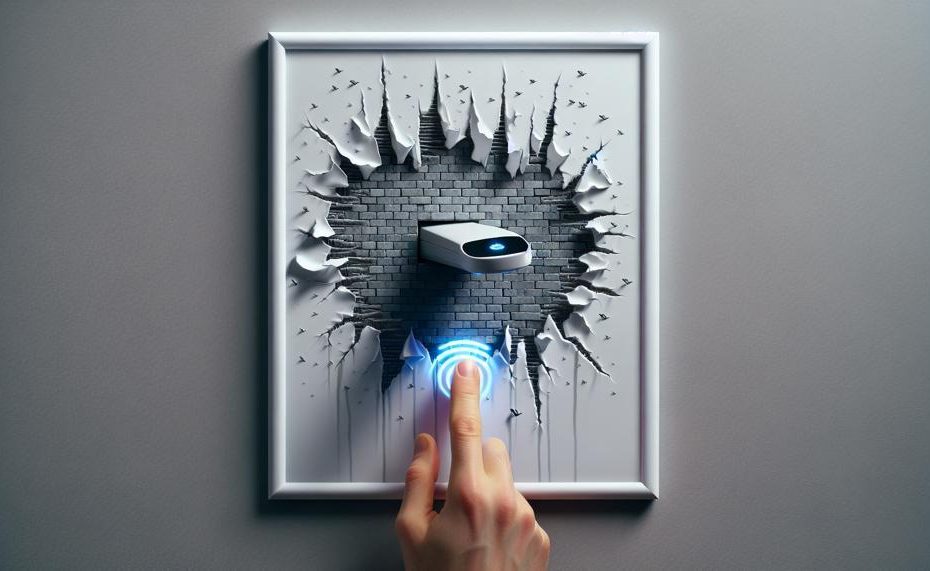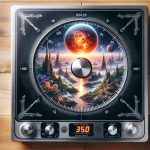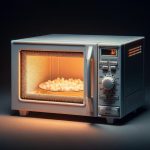Have you ever been sitting in your living room, enjoying a quiet evening, when suddenly you hear a strange clicking noise coming from your walls? It’s a sound that can send shivers down your spine and leave you wondering if there’s something lurking behind those seemingly solid walls.
In this blog post, we’ll delve into the world of mysterious clicking sounds in walls and uncover the truth behind this perplexing phenomenon.
So, why do I hear clicking in my wall?
A clicking noise in a wall can have many causes, including:
- HVAC ductwork: When metal heats up, it expands, and when it cools, it contracts. This can cause a repetitive ticking or clicking sound.
- Temperature and humidity changes: As the temperature and humidity change, materials shift against each other, which can cause creaking, groaning, popping, and cracking.
- Movement: Creaking can be caused by movement in the home due to solar gain or loss.
- Plumbing vent pipe: Creaking can be caused by a plumbing vent pipe, which can be caused by heat expansion or contraction.
- Joints: A loud popping noise can be caused by a joint where two pieces of wood come together or wood is bolted to the foundation. As the temperature and/or humidity changes, wood expands and contracts, and a joint can “stick” and not move smoothly. When enough tension is applied to that spot, it releases with a pop.
- Mice: Mice can fit into a hole smaller than the diameter of a pencil and can scratch, scurry, or click through walls, ceilings, and vents.
- Click beetles: Adult click beetles can be found inside a house around lights or sources of moisture.
- Electric outlets: A clicking noise from an electric outlet could be the GFCI triggering repeatedly. This could be due to a worn out GFCI, a problem with the night light, or something further down the circuit.
So, join us on this journey as we unravel the mystery of those enigmatic clicks in your walls.
Contents
Plumbing and Water-Related Issues
When it comes to plumbing and water-related problems, it is not uncommon to hear clicking sounds in the walls. These sounds can be caused by various issues such as leaky pipes, clogged drains, and faulty valves.
However, they can also be a result of thermal expansion of hot water pipes or other sources like heating and cooling systems, electrical problems, or even pests and wildlife activity outside the home. It is important to identify the root cause of these noises and address them promptly to prevent further damage.
To help you better understand and address these clicking sounds, the table below summarizes some potential causes and their corresponding solutions:
| Possible Cause | Solution |
| Leaky pipes | Contact a professional plumber to repair or replace the affected pipes. |
| Clogged drains | Use a plunger or drain cleaner to clear the blockage. |
| Faulty valves | Have a plumber inspect and replace any damaged valves. |
| Heating/cooling systems | Call a certified technician to check and repair any issues with the system. |
| Electrical problems | Seek assistance from an electrician for loose wiring or damaged circuits. |
| Pests/wildlife activity | Set traps or hire an exterminator to eliminate any pests causing the noise. |
It is of utmost importance to address these plumbing and water-related issues right away to avoid further damage to your home. Ignoring them can lead to expensive repairs and potential health hazards.
If you are uncertain about the source of the clicking noises, it is best to seek professional help for an accurate diagnosis and solution. By taking care of these issues, you can ensure a safe and comfortable living environment in your home.
Heating and Cooling System Problems
Clicking sounds coming from your walls might indicate a number of problems with your HVAC system.
Avoid ignoring these issues as they may worsen and perhaps jeopardize the effectiveness of your HVAC system. Thermostat malfunctions, faulty relays or electrical controls, fan blockage, and malfunctioning ignition systems are a few of the typical reasons of clicking sounds.
It is essential to get these problems fixed by qualified professionals in order to stop more damage and guarantee maximum performance. Furthermore helpful in avoiding future clicking noise issues are routine maintenance and tune-ups.
If you want a quieter and more efficient HVAC system, you may need to replace an old one. If the clicking sounds are coming from the compressor, replacing the complete system can be a more economical option than fixing it.
For a professional evaluation and advise about whether to update or replace your heating and cooling system, it is always advisable to speak with local HVAC specialists.
Electrical Issues
The causes of clicking noises in walls might include loose components, broken switches, damaged wiring, circuit breakers, appliances, and normal house settling. In order to prevent future damage and ensure the security and efficiency of your electrical system, it is imperative that you take immediate action to fix these issues.
Indeed, homes may have a great deal of trouble with electrical problems. I recall the unusual clicking sounds coming from the walls when I first moved into my house. I first believed it to be the typical “settling” of the home, but as it persisted for many weeks, I realized something wasn’t quite right.
After I hired an electrician, they found that the clicking sounds were coming from loose pieces in the wiring. They clarified that if ignored, it can cause further harm and might be dangerous. I learned as a homeowner how critical it is to take quick action to resolve electrical problems before they become worse.
Additionally, defective switches may be a factor in wall clicking sounds. Although these can seem to be little problems, they might potentially be an indication of a more serious electrical system issue. For this reason, it’s critical to have any malfunctioning switches inspected by a professional and fixed as soon as feasible.
Clicking sounds coming from walls might also be caused by broken wiring. If left untreated, this may be deadly in addition to being an annoyance. When it comes to the electrical system in your house, it’s always better to be safe than sorry.
Pest Problems
Pest problems can lead to annoying clicking sounds in walls caused by the movement and noise-making of various pests, such as rodents, insects, and birds.
These pests can cause damage to a house’s structure, including walls and ceilings, resulting in clicking or tapping noises that can be heard inside the house. Below are some scenarios in which different pests can create clicking sounds in walls:
- Rodents: Mice, rats, and other rodents can produce clicking sounds as they move around inside walls or ceilings. These animals may also chew on wood or other materials, resulting in clicking or scratching noises.
- Insects: Certain insects, like termites or carpenter ants, can generate clicking sounds as they bore through wood. This is due to their use of mandibles to chew through wood and create tunnels for their colonies. As they do so, they can create clicking or tapping noises inside the walls.
- Bats and squirrels: These animals can also cause clicking noises as they move around inside walls or ceilings. They may also gnaw on wood or other materials, leading to clicking or scratching sounds.
- Birds: Certain species of birds, such as woodpeckers, can produce clicking or tapping sounds by pecking at the exterior of a house. This behavior is often seen when birds are looking for food or creating nesting holes. If the bird pecks at a wooden wall or siding, it can result in clicking noises heard inside the house.
Aside from the annoyance of clicking sounds in walls, pest infestations can also cause damage to a house’s structure and lead to other issues such as electrical problems, insulation damage, and potential health hazards.
Therefore, it is crucial to promptly and effectively address any pest infestations to prevent further damage and maintain a safe and comfortable living environment.
House Settling
A house may naturally settle and move with age, putting stress on the flooring, walls, and other structural elements. As a consequence, there may be sounds within the walls that creak or click. Changes in humidity and temperature, the makeup of the soil, work going on nearby, excessive traffic, and the weight of the house itself are all common reasons for this kind of settlement.
These elements may result in shifting and compressing of the earth under the house, which might fracture the foundation or other structural elements. These fissures may leave spaces between walls and structural elements, which can cause the house to shift in alignment and make creaking or clicking sounds. Furthermore, since various portions of the house settle at different speeds, there may be unequal pressure on certain locations, which might result in further creaking or clicking.
It is crucial to routinely check for any obvious cracks or holes in the foundation and structure of your home in order to address house settling and reduce clicking noises coming from your walls.
Wind
Wind has the potential to affect the clicking noises emanating from your wall by causing variations in air pressure. This, in turn, can impact the movement and settling of your home’s structure, resulting in bothersome creaking, cracking, or banging sounds for homeowners.
To reduce these noises, it is crucial to ensure that your home is properly insulated and ventilated. This helps maintain a steady temperature and prevent sudden changes that can cause the structure to shift and settle. Additionally, regular maintenance of your HVAC systems, electrical systems, and plumbing can also aid in minimizing clicking noises caused by these factors.
Here are some specific steps you can take to minimize clicking noises in your wall due to wind:
- Thoroughly inspect your home’s foundation and structure for any gaps or cracks. These can be sealed with caulk or foam sealant to prevent wind from entering and creating pressure changes that lead to clicking noises.
- Check for any loose wiring or outlets and switches that may be causing electrical clicking sounds. Tighten any loose connections or seek assistance from a professional electrician.
- Regularly maintain your plumbing systems to prevent water hammer, which is a banging sound caused by sudden changes in water flow or pressure.
- Ensure proper ventilation in your attic to prevent temperature fluctuations that can cause the structure to expand and contract, resulting in creaking or cracking noises. Inspect for pests and seal any entry points to prevent rodent infestations that may contribute to tapping sounds on the wall.
- Regularly flush your water heater to prevent sediment buildup that can lead to popping noises.
Appliances

When it comes to common household appliances, there are a few culprits that can cause annoying clicking sounds in your walls. These include refrigerators, dishwashers, and washing machines. There are steps you can take to troubleshoot and fix the issue.
| Appliance | Main Cause of Clicking Sounds | Troubleshooting Steps |
|---|---|---|
| Refrigerator | Vibrations against surrounding structures or leveling issues | – Check levelness – Tighten loose components – Move appliance away from wall – Consult professional repair service if necessary |
| Dishwasher | Vibrations against surrounding structures or leveling issues | – Check levelness – Tighten loose components – Move appliance away from wall – Consult professional repair service if necessary |
| Washing machine | Vibrations against surrounding structures or leveling issues | – Check levelness – Tighten loose components – Move appliance away from wall – Consult professional repair service if necessary |
Remember, if the clicking sounds persist after troubleshooting, it’s best to seek professional assistance. Addressing the issue promptly can not only reduce annoying noises but also prevent potential damage to your appliances and home.
Conclusion
In conclusion, the perplexing clicks emanating from your walls can be attributed to a variety of factors, ranging from plumbing and water-related issues to problems with heating and cooling systems, electrical malfunctions, pest infestations, house settling, wind, and even household appliances.
It is crucial to pinpoint the exact cause of these noises and address them promptly to avoid any further damage to your home. Seeking assistance from professionals or following simple troubleshooting steps can help eliminate these bothersome clicks and ensure a safe and comfortable living environment.
Remember to regularly maintain your home’s systems and structures to prevent future occurrences of clicking sounds.





